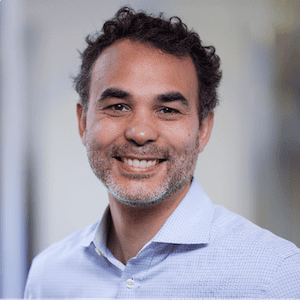-
Curing Pilot-itis for mHealth
How do you take mobile health projects beyond the pilot stage in low- and middle-income countries? Build for scale and sustainability from the start. That's the goal of a bot for Messenger built for the South African National Department of Health’s MomConnect maternal health platform, and launched this week at the International AIDS Conference.
- Categories
- Health Care
-
Three Growth Strategies to Boost Sri Lanka’s Microfinance Sector
Sri Lanka's microfinance industry is expected to reach maturity in the next few years, so market penetration growth strategies will shape the growth of successful players. But there is limited industry research on the country’s microfinance sector. Intellecap has attempted to bridge this gap by presenting the following market opportunities and growth strategies, based on conversations with leading practitioners, policy makers and capital providers.
- Categories
- Uncategorized
-
Making Impact Core to Education Companies’ Business Strategy
India's education sector faces many daunting challenges, including proving economic and social value. With so many hurdles to cross, education companies must still make quantifying their impact – and communicating those findings to the masses – a priority.
- Categories
- Education
- Tags
- impact investing
-
100 Social Innovators and 10 Lessons for Career, Life
In interviewing the social innovators profiled in Solving Problems that Matter, I noticed a number of recurring themes of championing rigorous, ethical, evidence-based approaches; learning how to fail and bounce back; and being willing to question the dominant paradigm. Innovators stressed the need to deeply understand the challenges and the larger system by spending considerable time in the field talking with all the stakeholders. They emphasized the need to seek and analyze the lessons learned from previous efforts, quantify results and build relationships across sectors.
-
Harnessing Mobile Technologies to Make Matatus, and Kenya, Safer
Kenya's roads are deadly due in no small part to accidents involving "matatus," the ubiquitous minibuses. A key problem: The more passengers they pick up, the more matatu drivers get paid. So Echo Mobile and a team from the University of California at Berkeley recently launched the SmartMatatu project to study driver behavior and how they might be incentivized differently.
- Categories
- Health Care, Technology
-
Weekly Roundup: Keeping Talent, Seeking Another Uber, Auctioning Vegetables, Watching for Seagulls
In this week's Roundup: The talent dilemma in social entrepreneurship; a discussion about whether there will ever be an Uber for health care; a smallholder farmer turned WhatsApp auctioneer; and the revelation that the highest use of drones is probably not as sunscreen-pooping seagulls.
- Categories
- Health Care
-
Equipping a New Era of Global Development
Sometimes it can feel like NGOs, social businesses and big development aid institutions are in competition with one another to improve the world. But in an increasingly complex world, we should view violent extremist organizations, such as ISIS, as development competitors. This perspective was a running theme – but one of several facing social entrepreneurs and global development leaders at all levels – discussed at Devex World.
- Categories
- Health Care, Impact Assessment
-
Swine Flu Adds to Brazil’s Zika Worries
Brazil, which will host the Olympics beginning Aug. 5, was already beset by economic problems, a political crisis and the Zika outbreak. Now it's experiencing its worst swine flu outbreak since 2009. Dr. Melvin Sanicas, a program officer at the Bill & Melinda Gates Foundation, wonders if this will be the crisis that forces a change to the Olympic schedule.
- Categories
- Health Care










